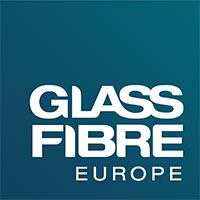Today, our association, along with six industry associations dedicated to advancing the circularity of composite materials, has issued a joint position paper. This position paper underscores the need for a regulatory framework suited to circular composites, starting with the establishment of specific waste codes. We consider that waste codes are crucial for enabling both public and private actors to evaluate the necessary infrastructure for the collection, sorting, and sustainable processing of these materials.
Our industries believe there is potential to develop a viable business case for sustainable end-of-life solutions for composites, starting with the wind energy and boating sectors. These two sectors have a longstanding history of utilizing composites in large-scale components, which are relatively straightforward to locale, collect, dismantle and sort. This provides a consistent and predictable flow of waste to treatment facilities. Over time, this framework could be expanded to include waste from other sectors, once sustainable treatment solutions are commercially viable and the waste from those sectors can be efficiently collected and sorted.
Glass Fibre Europe and its partners are eager to work with the authorities to define the right regulatory framework that will enhance the circularity of composite materials. We have outlined six proposals for amending Europe’s waste policy, detailed in our joint position, which are available below:
1. Revise the List of Waste to create dedicated waste codes for end-of-life composite materials from decommissioned wind turbine rotor blades and nacelles, and boats (see Annex I).
2. Revise the Waste Framework Directive to set progressive targets for the reuse and recycling of composite material waste from decommissioned wind turbine rotor blades and nacelles, and boats covered by the waste codes in Annex I.
3. Revise the landfill directive to set a landfill ban on the waste from decommissioned wind turbine rotor blades and nacelles, and boats covered by the waste codes in Annex I.
4. Revise the waste shipment regulation to create dedicated codes for end-of-life composite materials from decommissioned rotor blades and nacelles, and boats to allow better intra-European transport. And to ensure composite material waste are subject to the Green control procedure of the Basel Convention.
5. Recognise cement co-processing as a recycling process according to the Waste Framework Directive 2008/98/EC for its raw material recyclability.8
6. Enable on-site dismantling of recreational boats by simplifying permitting and licensing rules and procedures for occasional dismantling, including the potential use of mobile units (or inclusion in repair and maintenance licenses).


